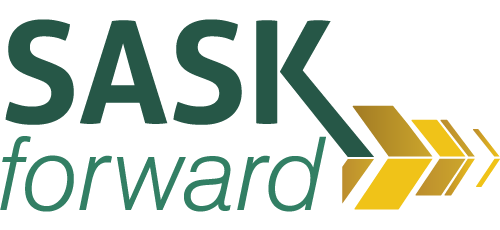Supporting the public’s right to know: how we need to reform our Freedom of Information legislation in Saskatchewan
“The overarching purpose of access to information legislation is to facilitate democracy by helping to ensure that citizens have the information required to participate meaningfully in the democratic process and that politicians and bureaucrats remain accountable to the citizenry. Rights to state-held information are designed to improve the workings of government; to make it more effective, responsive and accountable.” – Supreme Court of Canada
When the government of Saskatchewan proclaimed its access to information and protection of privacy legislation on April 1, 1992, it was the first such legislation in western Canada. Saskatchewan was seen as leader in the west for more transparent and accountable government.
Since then, our expectations have expanded faster than changes to legislation. With the age of the internet and free access to all kinds of information, it sometimes appears that anything you want to know can be found on the world-wide-web.
That is not always the case. Governments, local governments and public sector employers collect all kinds of information and make important decisions based on information that is often not publicly available. And many of those decisions are increasingly being made for political reasons without full disclosure to the public of any evidence or sound policy to back the decision.
My idea for transformational change in Saskatchewan is to completely overhaul our freedom of information legislation to make it more effective, grant enforcement power to the Information and Privacy Commissioner, and have government be more proactive in its disclosure of information so that residents do not have to rely on access to information requests to get documents or information they want.
Overhaul freedom of information legislation
There have been relatively few amendments to freedom of information legislation in this province – and across Canada – in the last decade. At a right to know conference organized in May 2015 by the Canadian Journalists for Free Expression, federal Information Commissioner Suzanne Legault spoke about the urgency of reforming freedom of information legislation federally and provincially. Her 2014 annual report had 85 recommendations alone to amend the federal Access to Information Act. All 14 information and privacy commissioners agreed that massive changes needed to be made to legislation.
One of the key areas for reform is to the overuse and broad application of “cabinet confidentiality” to deny access to information requests. Under access to information legislation, all public records are to be released unless they fall under certain exemptions. Cabinet confidentiality is one such exemption and is frequently used when a government simply does not want to disclose information. Legault reported that the use of this exemption increased by 48% at the federal level. Someone once joked that the government could have someone walk through the cabinet room with a document and then declare it exempt from disclosure under cabinet confidentiality.
In Saskatchewan there is one case (Review Report F-2012-004) where a resident requested copies of the background information provided to new Cabinet Ministers but was denied under the cabinet confidentiality clause. It took over five years of appeal before information was disclosed to the resident.
Unlike most other provinces, Saskatchewan has two different Acts: one that covers provincial government and Crowns; and one that covers local authorities such as school boards, municipalities, health regions, universities and colleges. This means that residents must know which legislation to follow, which form to fill out for an access to information request, and knowing that an application fee of $20 is required only for requests to local authorities.
Saskatchewan access to information legislation is not as strong as the legislation in Alberta and British Columbia. For example, Saskatchewan law does not cover the Workers’ Compensation Board, even though it is covered in Alberta and British Columbia. Both of the provinces to the west of us also have a public interest override clause that places a duty on the head of a public body to disclose information to the public if there is a significant risk of injury or harm to the public. Saskatchewan does not have this.
Both Alberta and BC have a process to regularly review their access and privacy laws by all-party committees of the legislature, but there is no requirement for a statutory review of our access and privacy laws and there have been limited revisions.[1]
Grant the Information and Privacy Commissioner power to issue binding orders
The access to information process can be complicated and lengthy. If an applicant is not satisfied with the response from a public body, or wants to challenge a decision of the government to deny access to information, that person can go to the Information and Privacy Commissioner to request a review of the decision.
After a review, the Commissioner make agree with the applicant and make a recommendation that government release the information, or reduce the fee it wants to charge. But the Commissioner can only make recommendations. He cannot force the government body to comply with his recommendation.
Information Commissioners in some other provinces, such as B.C., can issue binding orders. The federal Information Commissioner does not have this power.
Because the Commissioner does not have the power to enforce a recommendation, the government body can delay responding or simply ignore the recommendation. We have seen this happen with the CBC requests for information related to the Global Transportation Hub land sale. The Information and Privacy Commissioner reproached the government three times on its failure to respond to access to information requests.[2]
CUPE won an important victory when the Information and Privacy Commissioner recommended that 3sHealth release a copy of its ten-year contract with Alberta-based private company K-Bro Linens and that the government amend legislation to include 3sHealth under LAFOIP. 3sHealth complied and provided a copy of the contract but the government ignored the recommendation to place 3sHealth under the scope of LAFOIP.[3]
We need to give enforcement powers to the Commissioner so that we can demand more transparency and accountability from our government bodies.
Pro-active disclosure of information to the public
As mentioned earlier, using the access to information process can be complicated and take a lot of time. The attempts to get a copy of the K-Bro laundry contract involved numerous submissions to the Commissioner, discussions with public bodies and correspondence with lawyers over about two years. Others have had similar experiences trying to pry public documents into the open.
In many cases, a public institution will easily comply with a request. But when a public body refuses to provide information, not every resident has the ability, tenacity or desire to go through a lengthy appeal process.
That is why many right to know activists are advocating for pro-active disclosure of public information, or open government. The view is that public bodies should be proactively disclosing data and information on public websites so that information is easily accessible. Residents would not have to file access to information requests if the information was readily available.
Right to know activists are also calling for governments to be held to a duty to create documents. In Canada, there is a new trend where governments are avoiding the disclosure of information by not producing documents. The paperwork that documented the work of government is disappearing. For example, journalist requests for emails and documents in former Ontario Premier McGuinty’s office relating to the gas plant scandal only turned up 102 emails. Staff in the Premier’s office communicated on their blackberry devices instead of government servers.
BC Information and Privacy Commissioner Elizabeth Denham found that 25% of all access to information requests turned up no records, and 45% of requests to the Premier’s office failed to produce a single document. In Saskatchewan, CUPE’s request to the Ministry of Health and to four health regions for a copy of the ten-year privatized laundry contract was denied because “no document exists.”
An overhaul of our access to information laws must include a legislated duty to document.
Recommendations:
Here are but a few ideas of how our access to information legislation should be reformed in Saskatchewan:
- Review the exemptions in the legislation and limit the mandatory exemptions, such as cabinet confidentiality, so that the Information and Privacy Commissioner has more power to review information requests that have been denied.
- Merge the Freedom of Information and Protection of Privacy Act (FOIP) and the Local Authorities Freedom of Information and Protection of Privacy Act (LAFOIP) into one piece of legislation.
- Eliminate the $20 application fee for access requests under LA FOIP.
- Give the Information and Privacy Commissioner the power to issue binding orders on public bodies.
- Amend the legislation to include a public interest override clause that places a duty on the head of a public body to disclose information to the public if there is a significant risk of injury or harm to the public
- Create a legislated duty to document the decisions and policy development of government bodies
- Create an Open Government culture that proactively disclose public data and information so that it is readily accessible to the public
NOTES
[1] Office of the Saskatchewan Information and Privacy Commissioner, 2012-13 Annual Report, p.6-7.
[2] Geoff Leo,”3 strikes: Sask government chastised again for handling of GTH document requests,” CBC News, January 17, 2017.
[3] Office of the Saskatchewan Information and Privacy Commissioner, Review Report 068-2015.

